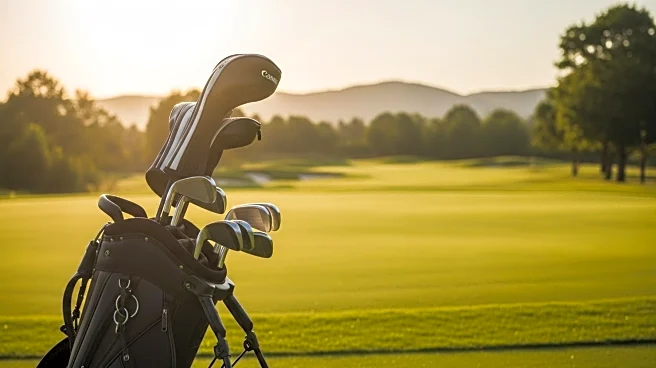What's Happening?
President Donald Trump is set to delay his arrival at the Ryder Cup, which begins on Friday at Bethpage Black in Farmingdale, New York. This decision comes after security concerns arose from his previous visit to the U.S. Open men's tennis final, which resulted in lengthy security backups. The PGA of America is awaiting final details on Trump's schedule, expected within the next 24 hours. The Ryder Cup's opening foursomes session is scheduled to start at 7:10 a.m. ET, followed by the fourball session at 12:25 p.m. ET. U.S. team captain Keegan Bradley and top-ranked golfer Scottie Scheffler expressed their honor at having Trump attend the event, highlighting the significance of his presence as a supporter of the American team.
Why It's Important?
The presence of President Trump at the Ryder Cup is significant for several reasons. His attendance underscores the importance of the event, not only as a major golf tournament but also as a symbol of national pride and unity. For the U.S. team, having a former president in attendance can boost morale and provide a sense of prestige. Additionally, Trump's decision to delay his arrival to minimize security disruptions reflects a consideration for the smooth operation of the event, which is crucial for both participants and spectators. The Ryder Cup is a high-profile event that draws international attention, and Trump's involvement adds to its prominence.
What's Next?
As the Ryder Cup approaches, the PGA of America is expected to finalize and announce President Trump's schedule. His presence may influence the dynamics of the event, potentially affecting media coverage and public interest. The U.S. team, led by captain Keegan Bradley, will aim to leverage the home advantage and the support of the crowd, including Trump's attendance, to reclaim the Ryder Cup title from Team Europe, the defending champions. The tournament will also serve as a platform for showcasing American golf talent and fostering national pride.
Beyond the Headlines
President Trump's involvement in the Ryder Cup highlights the intersection of sports and politics, where high-profile figures can impact public perception and engagement with sporting events. His attendance may also prompt discussions on the role of political figures in sports and the influence they wield in promoting national unity through such events. Additionally, the security measures associated with his presence may lead to broader conversations about the logistics and challenges of hosting major events with high-profile attendees.









